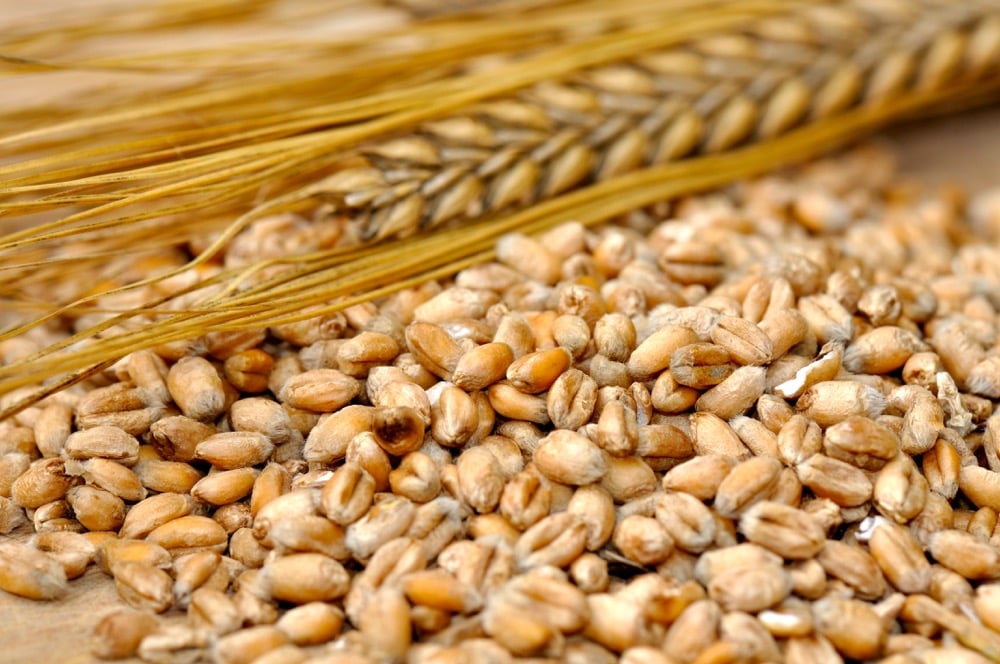Canada-U.S. relationship can weather trade disruptions, MacAulay says of Trump tariff threat

A 25 per cent tariff on Canadian goods could have serious consequences for sectors like beef and pork, but the federal minister of agriculture expressed confidence that the cross-border trade relationship can once again weather the storm.
“We’ve dealt with the Trump government previously and we’ll do it again,” he told Glacier FarmMedia today. “We will deal with each issue as they come forward.”
Trump said Monday he would sign an executive order on his first day in office in January that would impose a 25 per cent tariff on all products coming into the United States from Canada and Mexico to curb the flow of illegal drugs and migrants into the U.S.
Read Also

Agfinity declares bankruptcy
Agfinity Inc. officially filed for bankruptcy on Nov. 25, just over a month since the Alberta grain brokerage shut down operations and laid off employees.
During the first Trump term, relations between the U.S. and Canada frayed, with Trump threatening to end the North American Free Trade Agreement, and demanding Canada allow more access to U.S. dairy products.
MacAulay said Trudeau spoke with Trump shortly after the tariff comments were made. He also pointed to the re-established the Cabinet Committee on Canada-U.S. Relations, which will focus on such issues.
Disruptions, diversification
Tariffs could disrupt shipments of beef and dairy cattle and hogs between the U.S. and Canada, and potentially affect producers in both countries.
Manitoba alone sends about 3 million piglets each year to producers in Iowa, Minnesota, South Dakota and Nebraska, where feed corn can be sourced more cheaply, according to the Canada Pork Council and Manitoba Pork Council. Midwestern farmers then raise and fatten up the animals in their feeder barns, before sending them to slaughter – and the pork flows both to buyers in the U.S. and Canada after processing.
The threat of tariffs could be a way of attaining leverage over Mexico and Canada in the lead-up to renegotiation of the USMCA trade deal, set to be reviewed in 2026, said Peter Tabor, an attorney and senior policy advisor at Holland & Knight and a former USDA trade official in a report from Reuters.
But implementation of steep tariffs over time could mean the U.S. may be seen as an unreliable trading partner and that importers of U.S. goods would look elsewhere to fill the void, Tabor said.
Potash mining company BHP suggested diversification will be its answer to the tariff threat.
“We have a strategy to be geographically diversified with our sales. So we will not just sell to the U.S. We will sell all over the globe,” said Karina Gistelinck, asset president of potash for BHP in Saskatchewan.
“Obviously, the U.S. is a big end user, consumer for potash, and we will take that into account.”
Gistelinck said “tariffs come and go” and the Australian-owned BHP prioritizes resilience to tariffs and other price changes.
“We will do that by being the lowest cost, safest, most sustainable mine here in Saskatchewan.”
Defense, policing
Manitoba Premier Wab Kinew told media today that Canada needs to show Trump it’s serious about border security.
“We need more RCMP,” Kinew said. “We need more Mounties to bring the hammer down on drug traffickers. I think responding to that concern today will also help us on the trade side.”
Manpower is only part of the equation, said Kinew. He would also like to see police using high-tech tools such as drones for better enforcement outcomes.
Kinew also said Canada should hit its goal of spending two per cent of GDP on defense spending as a show of good faith to the Trump administration.
Although Trump did not broach the topic of defense spending in this instance, in the past he has referred a need for other countries, including Canada, to pull their weight.
“Hitting that target of two per cent spending on defense just sort of . . . gets us in the game just to be taken seriously as a security partner with the U.S. If we don’t do it, it’s going to become a trade problem,” Kinew said.
—With files from Karen Briere, Janelle Rudolph, Geralyn Wichers and Reuters
Source: Farmtario.com

